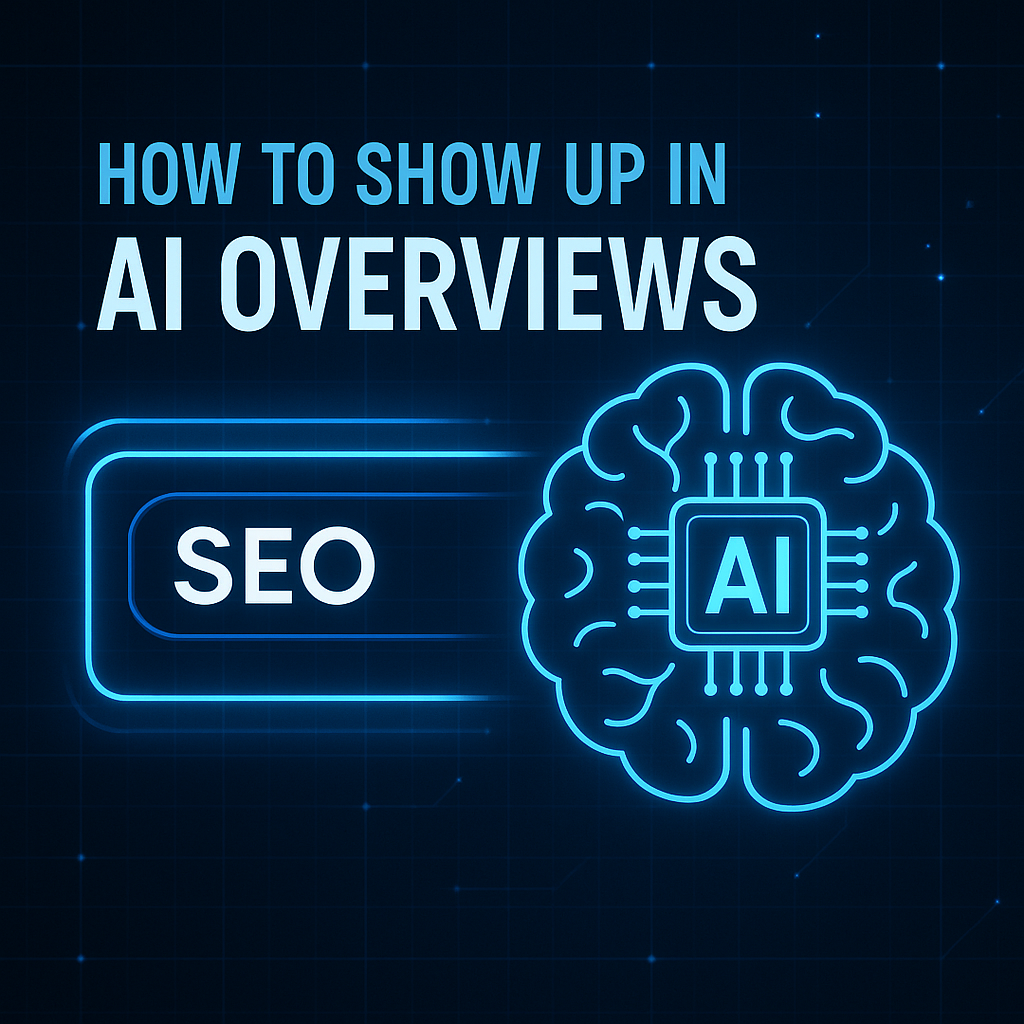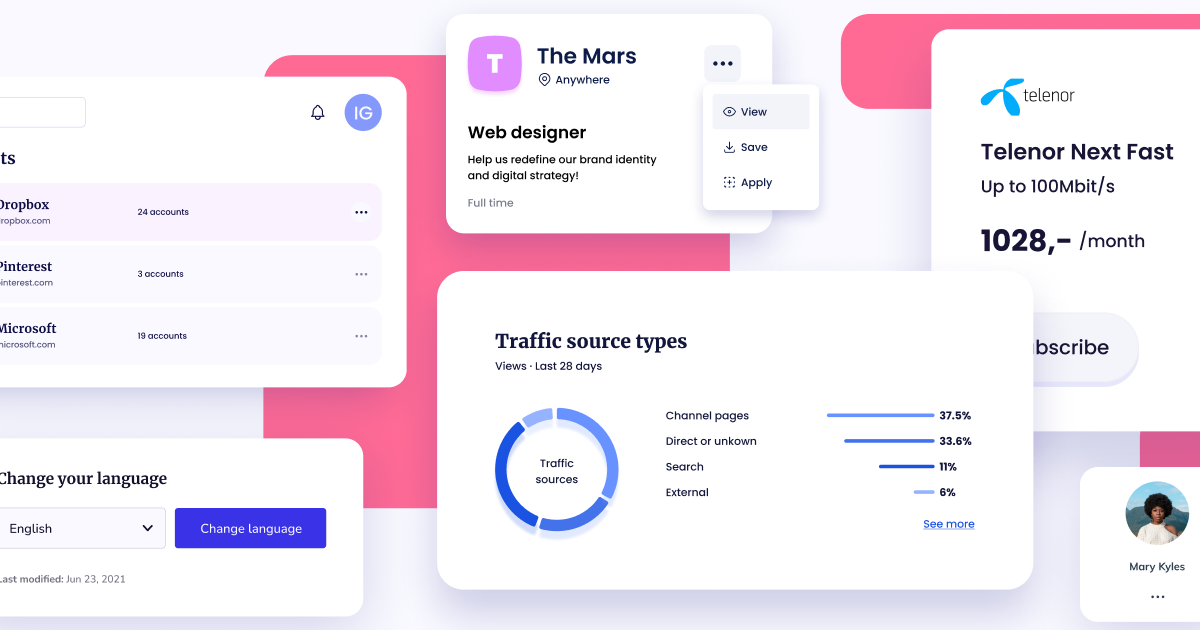How to Show Up in AI Overviews SEO: Mastering Generative Engine Optimization
Master AI Overviews SEO! Learn how to show up in AI Overviews effectively with strategies for content, technical SEO, and authority.

Have you noticed how search results are no longer just simple lists of links, but now often feature AI-generated summaries right on the page? This exciting shift means that showing up in AI overviews SEO is becoming essential for businesses and content creators who want to stay visible. But how exactly do you make your content the go-to snippet that AI highlights? In this article, I’ll walk you through everything you need to know about generative engine optimization—the next big evolution in SEO—and share practical strategies to help your content rise above the noise in an AI-driven world.
Key Takeaways
- AI overviews in search results prioritize context and natural, helpful answers over traditional keyword stuffing.
- Generative engine optimization focuses on optimizing content for AI models that synthesize answers, not just offering links.
- Clear content structure, natural language, and schema markup are vital strategies to improve AI SEO performance.
- The future of SEO is leaning toward AI understanding user intent deeply, personalizing results, and rewarding engaging user experiences.
- Monitoring tools and staying adaptable are key to thriving in the fast-evolving AI search landscape.
Why Showing Up in AI Overviews SEO Matters More Than Ever
Search engines are transforming before our eyes. Instead of listing dozens of blue links, AI-driven search overviews now appear with concise, relevant summaries generated by advanced models. If you want your content to get noticed, simply chasing keywords won’t cut it anymore.
Think of AI search like talking to a friend who summarizes the best answer instead of sending you on a wild goose chase. Your content must be the clearest, most relevant, and trustworthy source that AI can confidently pull from. This shifting playground is exactly where AI Search Optimization shines.
When I first noticed my traditional traffic dipping but saw engagement rise through AI snippets, I realized that adapting to this new style of SEO wasn’t optional — it was a game-changer. For a deeper dive into AI’s impact, check out Moz’s guide to AI and SEO.
Decoding Generative Engine Optimization: The Future of SEO
So, what exactly is generative engine optimization? In simple terms, it’s SEO tailored for AI-powered engines, like ChatGPT or Google Bard, that generate answers by synthesizing information rather than just listing links.
Here’s how it differs from traditional SEO:
- Content Alignment: Your content needs to support natural, conversational responses that answer user questions clearly and deeply.
- Ranking Focus: AI evaluates originality, usefulness, and clarity rather than solely relying on keywords or backlinks.
- Traditional vs. AI SEO: Instead of optimizing for website crawlers, you’re optimizing for AI models that generate information in a human-like way.
I like to think about it this way: when my friend uses voice search, she expects a simple spoken answer, not a list to review. This is the essence of generative engine optimization. You can learn more from Neil Patel’s insights on AI SEO.
Top Strategies to Optimize Your Content for AI-Driven Search
Ready to get your content AI-friendly? Here are some tips that helped me—and can help you too:
1. Craft Clear, Relevant, and Well-Structured Content
AI loves content that’s easy to navigate and packed with clear answers.
- Use logical headings and subheadings.
- Keep paragraphs concise and focused.
- Answer your audience’s real questions directly.
I noticed when I formatted posts like step-by-step tutorials or FAQs, AI could extract snippets much easier, boosting my visibility.
2. Implement Structured Data and Schema Markup
Think of schema markup as a cheat sheet for AI algorithms. It lets search engines understand exactly what your content is about.
If it sounds intimidating, tools like Google’s Structured Data Markup Helper make it straightforward. Adding schema can unlock rich results, making your listing stand out.
3. Use Natural Language and Conversational Keywords
Rather than packing your text with rigid keywords, imagine how people naturally ask questions:
- Instead of "AI Search Optimization tips," try "How can I optimize my content for AI search?"
- Think of voice search and AI assistants—they respond best to natural phrasing.
4. Balance AI Automation with a Human Touch
Automation tools can speed up content creation and analysis, but don’t let AI write everything for you. I found that adding my personal voice and double-checking facts kept content relatable and trustworthy—qualities AI struggles to replicate fully.
Want to learn more about structured data? Moz’s Guide on Schema Markup is a resource I often return to.
What’s Next? Emerging Trends in AI SEO and What They Mean for You
The SEO landscape is evolving fast alongside AI. Here are some trends shaping the future:
- Intent and Context Over Keywords: AI understands the “why” behind searches, rewarding content that nails user intent.
- Quality Over Quantity: AI spots fluff easily, so authentic, valuable content wins big.
- User Experience Matters: Engagement metrics like time on page and bounce rates influence AI rankings.
- AI-Generated Content Needs Human Oversight: Tools can help create faster drafts, but human editing remains crucial.
- Continuous Learning is Essential: The SEO pros of tomorrow will mix AI literacy with creative content skills.
For a comprehensive outlook, check out this guide on the future of SEO and AI.
Tools and Techniques to Monitor and Refine Your AI SEO Performance
Keeping up with AI-driven search means using the right tools and staying flexible. Here’s what works well:
- AI-powered SEO Tools: Platforms like Clearscope and Surfer SEO analyze content relevance and suggest optimizations tuned for AI search.
- Google Analytics and Search Console: Track more than clicks—watch how visitors engage with your AI-optimized content.
- Stay Updated: Follow trusted industry blogs like Moz’s SEO blog or Search Engine Journal to catch new AI algorithm shifts early.
- Leverage AI Content Creation Tools: Tools such as RankSEOBlog’s content helpers can generate drafts or keyword ideas while you focus on strategic creativity.
"SEO is a marathon, not a sprint. By combining smart tools with a flexible approach, you can stay visible and competitive in this ever-changing AI search environment."
Wrapping It Up: Your Action Plan for AI Overview SEO Success
Feeling a bit overwhelmed? Don’t worry—embracing AI Search Optimization is easier when you take it step-by-step. When I delayed adapting to AI SEO, I saw rankings slip; catching up made a huge difference.
Here’s a quick roadmap to keep you on track:
- Apply AI-friendly SEO techniques thoughtfully to your content.
- Stay curious and flexible—AI and SEO will keep evolving.
- Use trusted resources like Moz’s Beginner’s Guide to SEO to deepen your skills and updates.
By staying proactive, you’re not just reacting to change—you’re shaping your success. Dive in, experiment, and watch your visibility in AI overviews soar!
Frequently Asked Questions
What exactly is AI overviews SEO?
AI overviews SEO focuses on optimizing content to be featured in AI-generated summarized answers on search results pages, rather than simply ranking high in traditional link-based results.
How does generative engine optimization differ from traditional SEO?
While traditional SEO optimizes for keywords and backlinks, generative engine optimization targets AI models that create conversational, synthesized answers by emphasizing clarity, context, and natural language.
Do I need special tools to optimize for AI search?
While not mandatory, AI-powered SEO tools like Clearscope and Surfer SEO help refine your content to meet AI’s expectations. Also, implementing structured data using tools like Google’s Markup Helper improves your chances of rich results.
Can AI-generated content rank well in AI search results?
AI-generated content can be used as a foundation, but it must be reviewed and enhanced by humans to ensure authenticity, accuracy, and engagement—qualities AI alone can’t fully deliver yet.
What should I focus on for future-proof SEO in an AI-driven landscape?
Prioritize understanding user intent, creating high-quality and engaging content, using structured data, and staying adaptable to new AI updates and tools.



